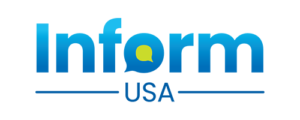About
Hope. Help. Healing.
To foster resilience and well-being for all by connecting people to accessible and compassionate support.
Purpose
Crisis Connections connects people in physical, emotional and financial crisis to services that will be of help.
We do this to reduce immediate emotional distress and defuse crises for individuals, families and the community; to reduce the immediate risk of violence to one’s self and others; and to increase the ability of people to access the safety net, particularly for mental and emotional support services.
Crisis Connections serves all people (in physical, emotional and financial crisis) with an emphasis on serving King County residents.
Licensing
Crisis Connections is state licensed by DSHS/DBHR as a crisis telephone service provider and as a certified chemical dependency treatment service— crisis intervention. We are also nationally accredited by International Council for Helplines and Inform USA. As one of the oldest crisis lines in the nation, we continue to be committed to providing excellent service to all who contact us.


Crisis Connections' nationally accredited lines include, 24-Hour Crisis Line, Teen Link and Washington Recovery Help Line.
How We Began
1963
On August 1, 1963, a 12-year-old girl was stabbed by a letter carrier. It was later discovered that the man had talked to several people during the days immediately prior to the attack, mentioning his violent feelings and impulses. The young girl recovered from the assault and her parents felt that something positive should come out of the experience. Believing that the tragedy might have been avoided if the assailant had had someone to turn to for help in managing his anger and homicidal impulses, they decided that a service was needed to meet the needs of people who are distressed, but uncertain about seeking professional help to cope with their difficulties. Thus, family, friends and community members came together to form Crisis Clinic, now Crisis Connections, and our 24-Hour Crisis Line.
1964
In March of 1964, members of the Board of Trustees answered phone calls at their places of business and in their homes.
1966
Crisis Clinic, now Crisis Connections, became nationally known in 1966. Shana Alexander wrote a story for Life magazine about a Seattle woman whose life had been saved by one of our volunteer phone workers. That article became a movie, filmed in Seattle, called The Slender Thread. Starring Sidney Poitier and Anne Bancroft, the movie tells the story of a woman who attempts suicide. She calls Crisis Connections, and Sidney Poitier tries to keep her on the phone while others go into action to trace the call and save her.
1963
On August 1, 1963, a 12-year-old girl was stabbed by a letter carrier. It was later discovered that the man had talked to several people during the days immediately prior to the attack, mentioning his violent feelings and impulses. The young girl recovered from the assault and her parents felt that something positive should come out of the experience. Believing that the tragedy might have been avoided if the assailant had had someone to turn to for help in managing his anger and homicidal impulses, they decided that a service was needed to meet the needs of people who are distressed, but uncertain about seeking professional help to cope with their difficulties. Thus, family, friends and community members came together to form Crisis Connections and our 24-Hour Crisis Line.
1964
In March of 1964, members of the Board of Trustees answered phone calls at their places of business and in their homes.
1966
Crisis Connections became nationally known in 1966. Shana Alexander wrote a story for Life magazine about a Seattle woman whose life had been saved by a Crisis Connections worker. That article became a movie, filmed in Seattle, called The Slender Thread. Starring Sidney Poitier and Anne Bancroft, the movie tells the story of a woman who tries to kill herself by swallowing a bottle of pills. She calls the Crisis Connections and Sidney Poitier tries to keep her on the phone while others go into action to trace the call and save her.
Programs
King County 211
In 1973, at the request of United Way of King County, Crisis Connections took on the United Way Information and Referral Service, which became the Community Information Line. In 2006, the Community Information Line began using the dialing code, 211, as part of a statewide effort to increase access to health and human services. It is now called King County 211.
Teen Link
In 1993, 16-year-old Audra Letnes died at the hands of a boyfriend who had abused her for over a year. Estranged from her friends and afraid to tell her mother what was happening, Audra kept to herself. Audra’s inability to tell those closest to her what was happening in her life sadly reflects the way too many teens feel today. Teen Link was created – a help line for and by teens in King County. Today, Teen Link answers calls from teens in need and also makes youth suicide prevention presentations at schools throughout the County. Teen Link is accredited by Inform USA.
WA Recovery Help Line
In 2011, Crisis Connections secured a contract from the WA Department of Social and Health Services, Division of Behavioral Health and Recovery (DSHS/DBHR) to offer a statewide consolidated helpline and we created the WA Recovery Help Line to offer support and referrals to services for people needing substance abuse, problem gambling, and mental health help.
WA Warm Line
The Washington Warm Line is a peer support line for people living with emotional or mental health challenges. This program offers hope to those who are still navigating their journey, whether they’re just starting or continuing on their path towards recovery. Volunteers with lived experience in mental health challenges and living in recovery answer calls to the Warm Line. Due to their own personal experiences, they are equipped to meet people where they are in their mental health journey.
Values
Accountability
We meet commitments and take personal responsibility for our decisions, actions, and failures. We are committed to making fiscally responsible decisions that align with our mission and sustain the organization
Collaboration
We build trustworthy partnerships with staff, volunteers, clients, donors, funders and the larger community. We work together to meet shared objectives and create effective solutions.
Continuous Improvement
We achieve results by identifying challenges and embracing opportunities for improvement and learning, navigating complex situations, and partnering to achieve positive results within the organization and the human services system.
Respect
We treat everyone with dignity and empathy by actively listening, seeking to understand, and communicating effectively, professionally, directly, and honestly..
Diversity, Equity, Inclusion & Belonging
We welcome all, embrace diversity, and foster belonging. We believe our employees and volunteers should feel respected and included for their individual identities, backgrounds, and perspectives, and thrive in the work environment. We share power, work to repair past inequity, and listen and learn from each other and our communities. We commit to addressing injustice and systemic oppressions, challenging our own individual biases, and working toward transforming our culture, policies and practices to accelerate change.




